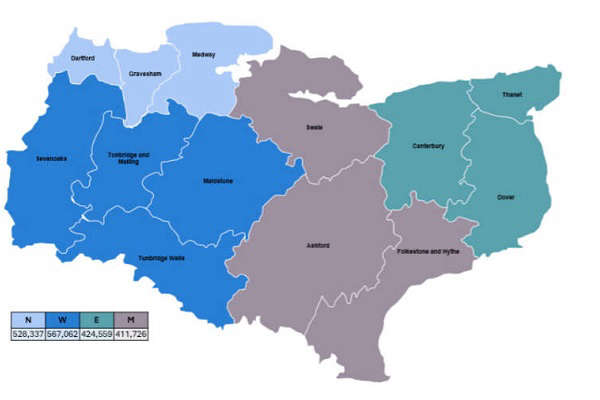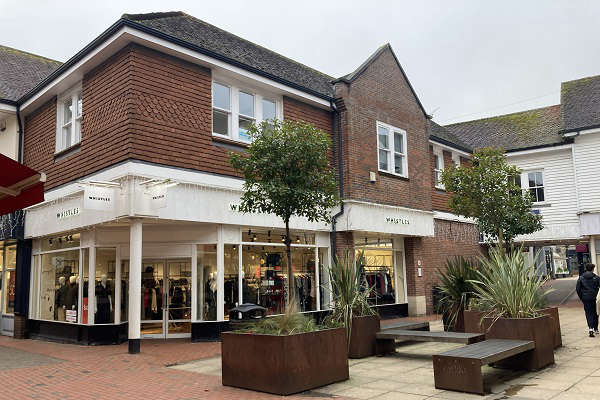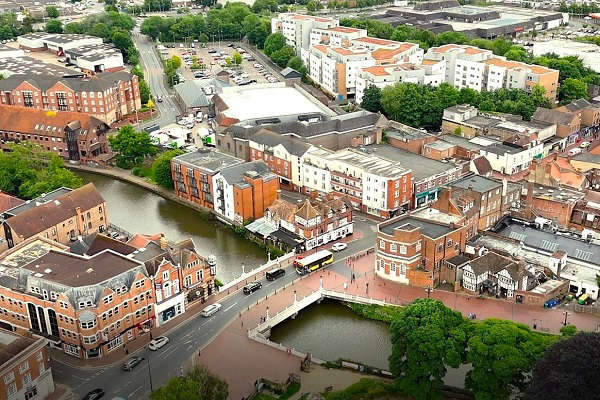
A “depressing" report by police and crime commissioner on the county’s courts
The criminal justice system in Kent has become so “totally jammed” with cases that some victims are walking away from prosecutions, it was revealed today.
The Kent Police and Crime Commissioner (KPCC) Matthew Scott shared a report which shows the caseloads at crown and magistrates courts are running 164% higher than four years ago.
The county is the second worst in the country, only behind Manchester, while the average national rise sits at 61%.
Mr Scott claims the issue has been partly due to a successful recruitment drive by police leading to more arrests and prosecutions.
But it has also had knock-on effects to the victims, defendants, the judiciary, lawyers and court staff.
The commissioner, addressing the Kent and Medway Police and Crime Panel this morning (July 16) at County Hall in Maidstone, said that victims are now becoming so tired of waiting, they are choosing to drop out of cases.
Mr Scott said: “That’s not justice – that’s justice denied.”
The papers from the office of the KPCC served to the panel said: “At 61% above February 2020, nationally there is clearly a serious problem and with the numbers still rising there is no sign of a recovery any time soon.
“Reasons for this increase include the impact of the pandemic, the Bar strike and ongoing staff shortages, particularly in terms of judiciary and barristers.”
But with Kent at 164% up on four years ago (193% for crown courts and 137% for magistrates courts), the KPCC points to other factors such as insufficient physical capacity, particularly at crown court and a shortage of key staff across the criminal justice and probation services.
The papers suggest increased numbers of police officers has led to more arrests and a larger volume of cases processed by the courts. This is now 50% higher than pre-pandemic, said the KPCC.
He added: “Despite frequent warnings dating back to pre-pandemic, the rest of the criminal justice system has not kept pace.”
One Kent barrister, who asked not to be named, said: “The problem with trials that take years to get to court is that memories fade, which is important to the witnesses giving evidence, so the quality of the evidence degrades over time.
“The waiting times are extraordinary these days. I know of cases which are going to have to wait until 2026 to go to court.
“The system is totally jammed, partly because of the Covid backlog, but also because of the volume of cases coming through the courts with insufficient judges and staff to deal with them.
“It is distressing for the victims who may have to wait years to have their day in court; the defendants have their lives put on hold while they wait for a resolution one way or another; staff feel overwhelmed with work and leave; and the interests of justice are not served.
“It feels rather artificial to punish someone after all that time.”
Another barrister in Kent joked that some cases have taken so long to be heard that the exhibits have fossilised.
Mr Scott said the business case has been made to create two more jury court rooms at Maidstone crown court – where there are already eight courts – but this has not progressed and could take several years before they would be ready to use.
The hotel-based “Nightingale” court in Maidstone was closed in March as it became frequently unused, due to the lack of judiciary and other court staff.
At magistrate level, the KPCC says there is sufficient capacity but is not in step with demand.
For instance, he pointed to Medway which has only three secure docks and five cells which falls “significantly short” of what is needed yet there is spare capacity at Sevenoaks and Margate.
The shortage of judges is exacerbated by a lack of barristers as they come from the pool.
Despite more Recorders being recruited recently to allow 95% court usage, the caseload numbers continue to rise.
Key staff including legal advisers, lawyers and probation officers are in short supply, an issue not helped by some choosing to work in London where they receive more money.
The KPCC has recommeynded an allowance for south-east staff be paid to “break the constant cycle of failed recruitment campaigns and staff shortages” but a funding squeeze has meant this idea has not been progressed.
The panel chairman Cllr Mike Hills said the report was “depressing” but wondered if the new coroners’ courts in Kent had capacity that could be used in the criminal justice system.
Cllr Ian Chittenden suggested there is ample space at County Hall – which is currently up for sale – to create court space.
The panel noted the contents of the report.

 Tunbridge Wells & Rusthall Common - For Sale
Tunbridge Wells & Rusthall Common - For Sale
 10,000 Electric Vehicle Chargers Coming To Kent
10,000 Electric Vehicle Chargers Coming To Kent
 Consultation on Future Council Areas
Consultation on Future Council Areas
 Hosepipe Restrictions Lifted
Hosepipe Restrictions Lifted
 Blighs Meadow is Under New Management
Blighs Meadow is Under New Management
 HGV Scheme Launched In Goudhurst
HGV Scheme Launched In Goudhurst
 Should Tonbridge Have A Town Council
Should Tonbridge Have A Town Council
 Tax Break Welcomed For Pubs
Tax Break Welcomed For Pubs




